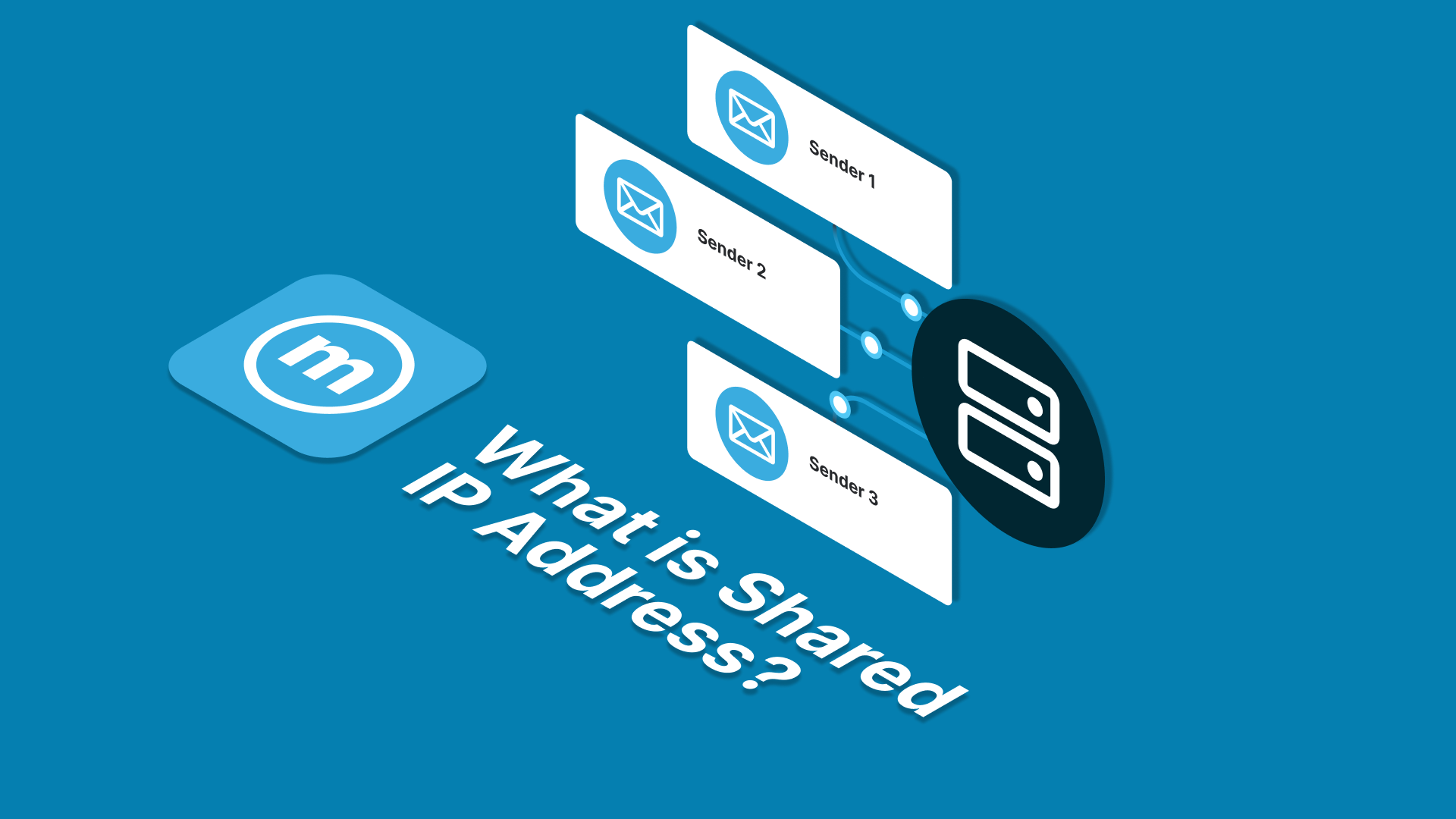Definition of Shared IP Address and Why Do You Need One

In the vast realm of the internet, the concept of IP addresses plays a pivotal role in enabling communication between devices and ensuring data transmission. Most individuals and businesses are familiar with dedicated IP addresses, which offer unique identification for a single entity.
However, shared IP addresses have gained importance in recent times, offering a cost-effective and efficient alternative. In this article, we'll delve into the definition of shared IP addresses, their significance, and why you might need one in your online journey.
Understanding IP Addresses
Before we dive into the specifics of shared IP, it's essential to grasp the basics of what an IP address is and how it functions. IP stands for "Internet Protocol," and it is a unique numerical label assigned to each device connected to a computer network that uses the Internet Protocol for communication.
IP addresses come in two primary categories:
- IPv4 (Internet Protocol version 4): This version uses a 32-bit addressing scheme and is represented as four sets of decimal numbers (e.g., 192.168.1.1).
- IPv6 (Internet Protocol version 6): Designed to replace IPv4, IPv6 uses a 128-bit addressing scheme, allowing for a vast number of unique IP addresses.
The IP address of a device is akin to a postal address for the digital world, as it helps direct data packets to the correct destination. In the context of the internet, IP addresses are instrumental in locating websites and routing data between servers and clients.
Shared IP Address: Defined
A shared IP address, also known as a shared hosting IP address, is an IP address that is utilized by multiple websites or online entities simultaneously. Instead of having a dedicated IP address exclusively for one website, multiple websites share the same IP address. This are commonly used in the realm of web hosting, where multiple websites are hosted on a single server, each having its domain name.
The concept is similar to a post office box where multiple individuals receive their mail at the same address. In the digital realm, multiple websites share the same IP address, and the server hosting these websites is responsible for directing incoming traffic to the appropriate website.
Dedicated IP vs. Shared IP: What's the Difference?
When it comes to IP addresses, there are two main types: dedicated IP and shared IP. These two options have distinct characteristics and are used in various situations.
Dedicated IP:
- It's exclusively for one user or website.
- Offers complete control over the IP.
- Your actions determine its reputation.
Shared IP:
- Used by multiple users or websites.
- More cost-effective and resource-efficient.
- Reputation benefits from all users.
In essence, the choice between shared or dedicated IP depends on your needs and budget. In this article, we're focusing on Shared IP.
The Significance of Shared IP Addresses
Shared IP addresses offer several advantages, making them a preferred choice for various scenarios:
1. Cost-Effective
Shared hosting with a shared IP address is usually more affordable than dedicated hosting. For businesses and individuals with budget constraints, this is a significant benefit.
2. Resource Efficiency
Shared IP make efficient use of resources as multiple websites share the same server. This reduces the overall cost of server maintenance and resource allocation.
3. Easy Setup
Setting up a website on a shared IP is typically straightforward. Hosting providers often offer user-friendly interfaces and tools to help users get their websites up and running quickly.
4. Scalability
Shared hosting can accommodate various website sizes and traffic volumes, making it a flexible choice. Users can often upgrade their hosting plans as their websites grow.
5. Security
While shared hosting does have its security concerns, hosting providers take measures to secure the server and isolate websites. For many users, the level of security provided is sufficient.
6. Technical Support
Shared hosting plans often come with technical support, which can be a valuable resource, especially for individuals with limited technical expertise.
Resource Pooling: Shared hosting benefits from resource pooling, where multiple users share server resources such as CPU, memory, and bandwidth, optimizing their utilization.
Why Do You Need a Shared IP Address?
Now that we've discussed the significance of shared IP, let's explore the specific scenarios in which you might need one:
Starting a Small Website
If you're launching a personal blog, a portfolio site, or a small online store, shared hosting with a shared IP is an excellent choice. It offers affordability and is suitable for websites with moderate traffic.
Limited Budget
Shared hosting is budget-friendly, making it ideal for individuals and businesses that want to establish an online presence without breaking the bank. It's a cost-effective solution for those who can't justify the expense of dedicated hosting.
Simplify Business Communication with an Email API
Shared IP in Email APIs offer cost savings, resource efficiency, improved email reputation, scalability, and security. They are budget-friendly, allow multiple users to share server resources, enhance sender reputation, adapt to growing email volumes, and benefit from security measures and support.
Specific scenarios where shared IP addresses are beneficial include startups, small businesses with budget constraints, email marketing campaigns to boost deliverability, sending transactional emails, maintaining efficient email infrastructure for software applications, and facilitating seamless scalability for growing email operations.
Want to use email API to revolutionize the way your business communicates with customers or clients? Use our Email API here. Try today, it's free!
Testing and Development
If you're a web developer or designer, a shared hosting plan with a shared IP allows you to create and test websites without significant upfront costs. You can easily manage multiple websites on a single server.
Blogging and Content Creation
Bloggers and content creators can benefit from shared hosting when starting their online journey. It's an accessible way to share your thoughts and creations with a global audience.
Small to Medium-Sized Businesses
Many small to medium-sized businesses find shared hosting with a shared IP to be a suitable option. It provides a balance between affordability and the resources needed to support their online operations.
Personal Projects
Whether it's a personal project, a hobby website, or a community forum, shared hosting offers the infrastructure needed to bring your ideas to life online.
Best Practices for Utilizing Shared IP Addresses
While shared IP addresses are valuable, there are certain best practices to ensure you make the most of this hosting option:
Choose a Reliable Hosting Provider
Select a reputable hosting provider with a track record of reliability and good customer support. Research user reviews and consider their hosting plans carefully.
Monitor Resource Usage
Keep an eye on your website's resource usage, especially if it experiences increased traffic. Some hosting providers may offer tools to help you optimize your site's performance.
Implement Security Measures
Enhance the security of your website by using strong passwords, regularly updating software, and considering additional security measures, such as a web application firewall.
Backup Your Data
Regularly backup your website's data to prevent data loss in case of unforeseen events.
Consider Future Scalability
If your website grows, be prepared to upgrade your hosting plan to accommodate the increased traffic and resource requirements.
Optimize Your Website
Ensure your website is optimized for performance and speed. Compress images, use content delivery networks (CDNs), and minimize unnecessary scripts to improve the user experience.
Conclusion
Shared IP are a practical and cost-effective hosting solution for various online endeavors, catering to individuals, small businesses, and developers alike. They provide a means to establish an online presence without the need for a dedicated IP address, making web hosting accessible to a broader audience.
By understanding the definition and significance of shared IP addresses, as well as when and how to use them, you can make an informed decision for your online projects. Whether you're starting a personal blog, launching a small business website, or experimenting with web development, shared IP addresses are a valuable resource in the digital landscape.
You can find more information about mailtarget’s Email API in our documentation.
If you want to send emails with ease, sign up for mailtarget today and try our sandbox environment for free. You can also switch to the production environment anytime and enjoy our free plan or upgrade to a premium plan that suits your needs.
(N.A)

